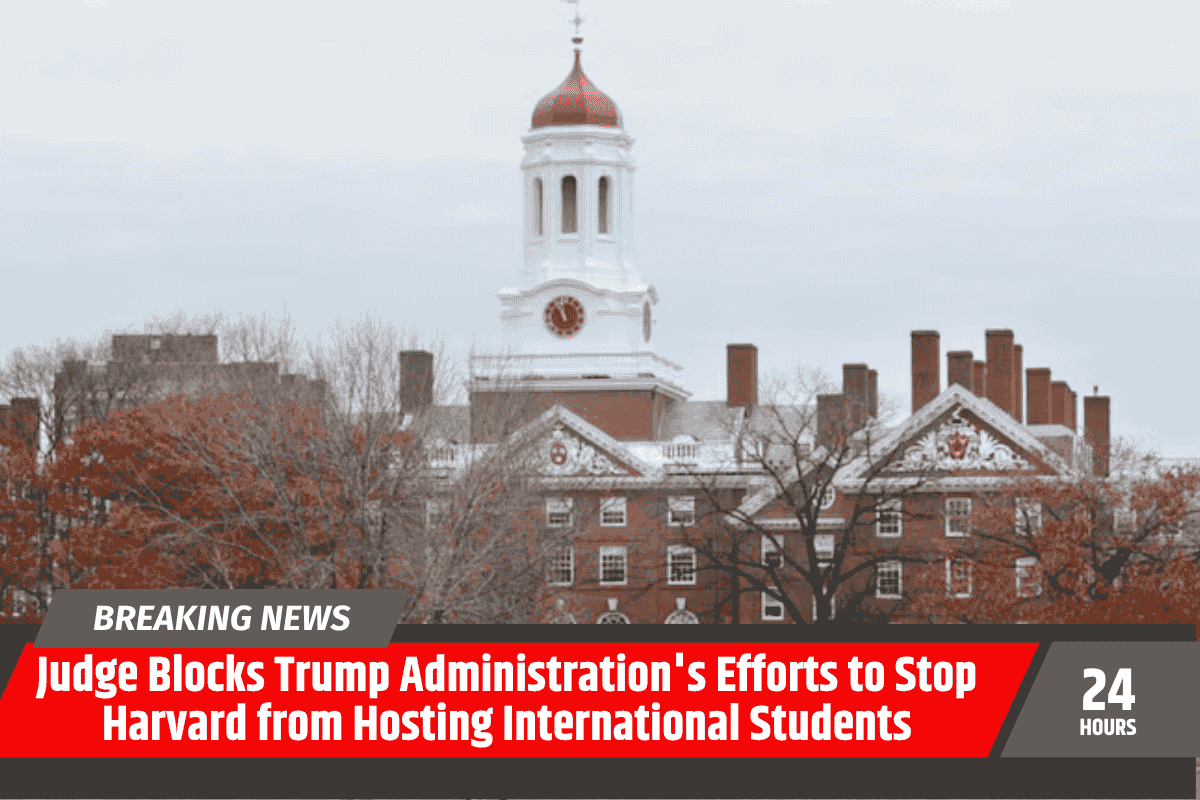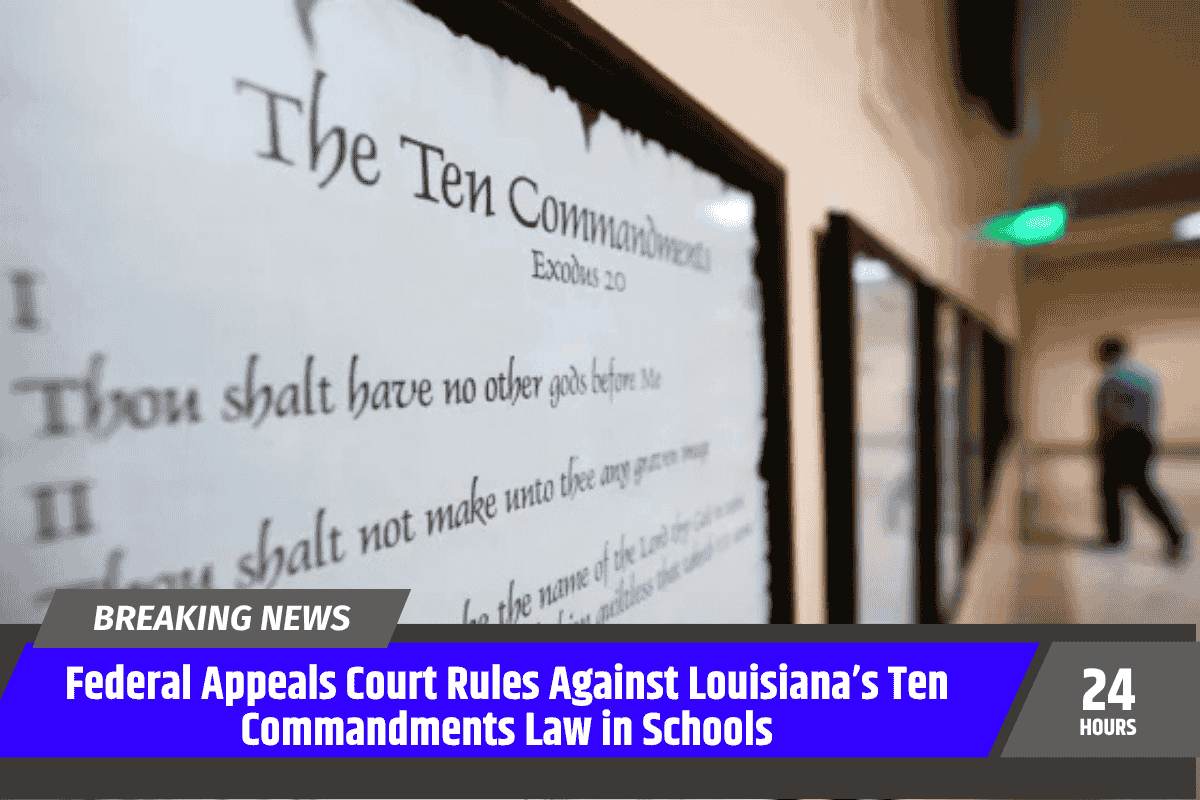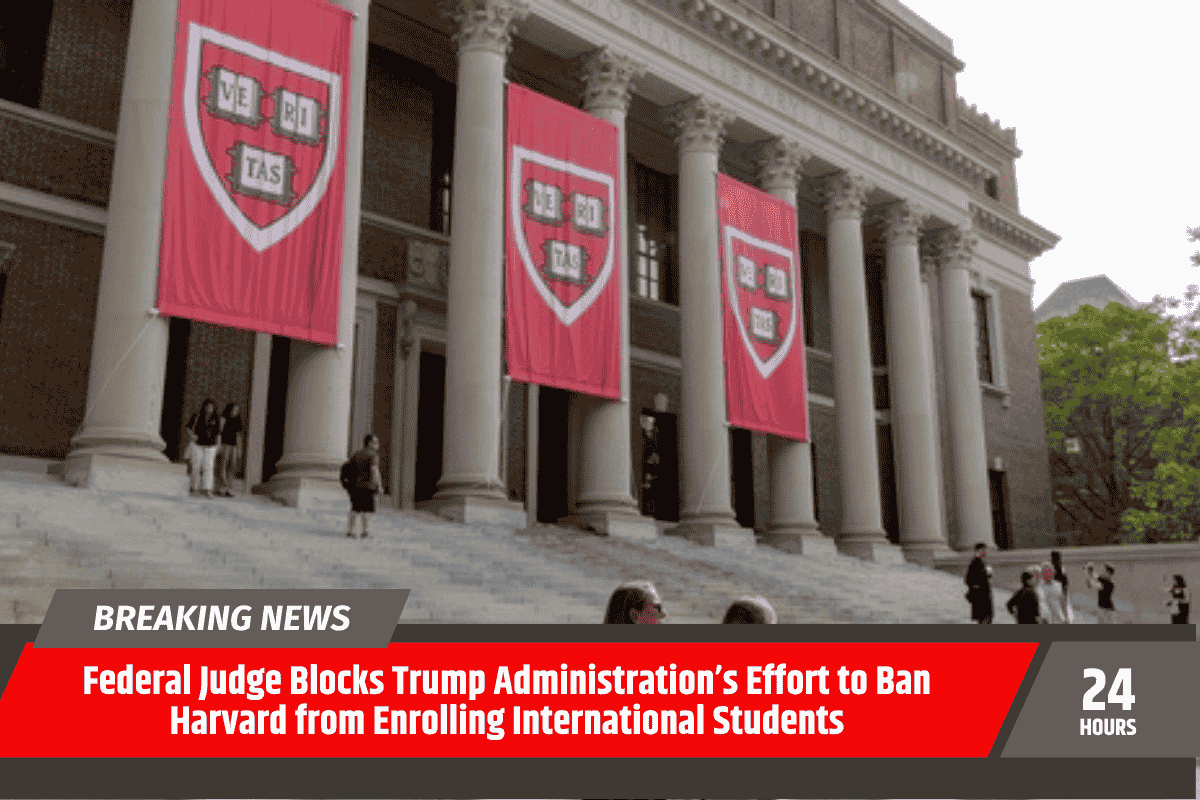A U.S. District Judge, Allison Burroughs, recently ruled in favor of Harvard University, blocking the Trump administration’s attempts to prevent the prestigious university from hosting international students.
This ruling marks another victory for Harvard, which has been challenging multiple sanctions imposed by the White House.
While this decision allows Harvard to continue hosting international students temporarily, it does not fully resolve the legal challenges facing the university in its fight with the Trump administration.
The Battle Between Harvard and the Trump Administration
The dispute began in May when Harvard University filed a lawsuit against the Department of Homeland Security (DHS). The DHS had suddenly withdrawn the school’s certification to host international students and issue the necessary paperwork for their visas.
This move could have forced over 7,000 international students to either transfer or risk being in the U.S. illegally. Harvard argued that the decision was a form of retaliation for rejecting several of the White House’s demands regarding policies on campus protests, admissions, and hiring.
As a result of the lawsuit, Judge Burroughs temporarily blocked the government’s action, allowing Harvard to continue admitting international students.
However, the judge did not rule on the broader issues concerning Harvard’s ability to host foreign students in the future. She noted that the government still has the legal authority to review Harvard’s ability to host international students through established procedures.
Legal and Administrative Challenges
In early June, President Donald Trump escalated the conflict by issuing a proclamation aimed at blocking foreign students from entering the U.S. to attend Harvard.
Harvard challenged this new move, claiming it was an attempt to bypass the temporary court order. Judge Burroughs blocked the president’s proclamation, and this emergency block remains in place.
Despite the court rulings, the situation has created uncertainty for international students. Harvard has been in close communication with students, assuring them that the university is planning for contingencies should changes occur in the eligibility for student visas or enrollment.
The legal battle continues, with the university expecting further decisions in the coming days.
Impact on International Students and Harvard’s Reputation
The ongoing legal battle has left many international students in a state of anxiety, uncertain about their future at Harvard.
The university has reported significant fear and confusion among students, particularly those from abroad, who are unsure if they will be able to continue their studies in the U.S. At the same time, Harvard’s international reputation has taken a hit, as the university has had to navigate these government sanctions while continuing to advocate for its students.
One prospective student, Huang, shared her frustrations after Harvard offered her a scholarship after her original doctoral offer was rescinded by another university due to federal cuts to diversity-related programs.
Despite court rulings against the Trump administration’s actions, Huang’s visa application remains in limbo, adding to the distress experienced by many international students.
Harvard’s Stance and Trump’s Criticism
The conflict between Harvard and the Trump administration has been ongoing for several months, particularly after the university rejected a series of government demands to address conservative concerns about the school’s policies.
The Trump administration had accused Harvard of tolerating anti-Jewish harassment and being too liberal. In response, the administration cut over $2.6 billion in research grants and ended federal contracts with the university.
President Trump recently stated that the administration has been working with Harvard to resolve these issues. He suggested that a deal with the university could be reached in the near future, though the specifics of such an agreement have not yet been announced.
Harvard’s Core Values
Throughout this legal battle, Harvard has emphasized its commitment to its core values, which include fostering an inclusive environment for students from all backgrounds.
Despite the pressure from the Trump administration, Harvard President Alan Garber reaffirmed that the university would not compromise its principles, even as it worked to address concerns related to antisemitism on campus.
The ongoing legal struggle between Harvard University and the Trump administration highlights the tension between government control and academic freedom. While Harvard has secured a temporary victory, the broader issue remains unresolved.
International students, in particular, are left uncertain about their future at one of the world’s top universities. Harvard’s legal team continues to fight for its right to host students from around the globe, and the next few weeks will likely bring more clarity on the future of this case.











